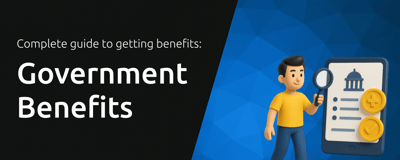Stepping off campus and into the wider world, recent college graduates face both exhilarating freedom and daunting financial responsibilities. Without a clear roadmap, it’s easy to feel overwhelmed by bills, student loans, and the ever-present pressure of lifestyle expectations.
By adopting practical money management strategies early, graduates can build a solid foundation that paves the way for long-term success, security, and even wealth accumulation over time.
The Fundamentals of Budgeting and Expense Tracking
Before your first paycheck arrives, draft a realistic budget that reflects your income and anticipated expenses. Understanding take-home pay—your gross salary after taxes and deductions—lays the groundwork for responsible spending.
Make it a habit to track every source of income and to categorize fixed expenses (rent, utilities) separately from variable costs (entertainment, dining out). This clarity helps you pinpoint areas where small adjustments can lead to significant savings.
Many graduates find budgeting apps or simple spreadsheets invaluable. Schedule weekly check-ins to review your balances and adjust targets, ensuring you stay on track and avoid surprises.
Navigating Student Loan Repayment Strategies
Student loans can feel like a heavy burden, but with the right approach, you can manage them without derailing other financial goals. Start by listing all your loans along with interest rates and servicers.
Consider these key strategies to accelerate repayment while maintaining flexibility:
Enrolling in autopay often reduces your rate by 0.25% and keeps you on schedule. If your budget allows, making extra principal payments—even small amounts—can shave years off your repayment timeline and save on interest.
Building and Maintaining Strong Credit
A healthy credit score unlocks lower interest rates, favorable loan terms, and better insurance premiums. Start by obtaining your free annual credit report to confirm accuracy and identify opportunities for improvement.
Consistently paying credit card balances in full and on time is the quickest way to boost your score. Aim to keep utilization below 30%, and avoid opening multiple new accounts at once.
Regular monitoring helps detect identity theft early. Set up alerts for significant changes, and dispute any errors promptly to maintain your reputation with lenders.
Establishing an Emergency Fund
Life is unpredictable. Whether it’s a car repair, medical bill, or unexpected job transition, an emergency fund is your financial safety net. Aim to save three to six months of living expenses over time.
Starting small is better than not starting at all. Automate transfers of $25–$50 per paycheck into a high-yield savings account. As your income grows, incrementally increase the contribution until you reach your desired cushion.
Starting Early: Saving and Investing for Your Future
Time is one of your greatest advantages when it comes to compounding returns. Even a modest contribution of 1%–2% of your salary into a retirement account can snowball into substantial wealth decades down the road.
If your employer offers a 401(k) match, contribute at least enough to grab the full match—that’s a guaranteed immediate return on your investment. Explore Roth IRAs or high-yield savings vehicles for additional flexibility and tax diversification.
Automating contributions ensures consistency and removes the temptation to skip savings during lean periods.
Negotiating Salary and Maximizing Benefits
Your first job offer sets the stage for your income trajectory. Research market rates in your field and geographic area so you can negotiate confidently. A 5%–10% raise at the outset can translate into tens of thousands more over your career.
Beyond base salary, explore the full suite of employer benefits—health plans, health savings accounts, tuition reimbursements, commuter stipends, and retirement matching. Understanding the monetary value of these perks can guide your decisions and unlock hidden savings.
Sidestepping Common Pitfalls and Avoiding Lifestyle Creep
As soon as your paycheck arrives, it’s tempting to upgrade your lifestyle. Guard against avoid lifestyle inflation temptations by prioritizing savings and debt reduction before discretionary upgrades.
To stay disciplined, consider these daily habits:
- Automate loan payments and savings.
- Review your budget and adjust categories monthly.
- Set clear milestones for paying off high-interest debt.
Conclusion: The Lifelong Advantage of Smart Financial Habits
Developing solid money management habits as soon as you graduate pays dividends throughout your life. By budgeting intentionally, tackling debt strategically, and saving consistently, you build momentum that carries you toward financial freedom.
Remember, every small step—whether it’s automating transfers, negotiating a benefit, or checking your credit—reinforces positive behavior patterns. Over time, these actions compound into long-lasting financial security and opportunities you might have never imagined.
References
- https://www.morningstar.com/personal-finance/financial-guide-2025-college-graduates
- https://blog.harvardfcu.org/graduation-season-financial-tips-for-the-class-of-2025
- https://www.ozarkfcu.com/blogDetail.php?Financial-Planning-for-Graduates-Tips-for-the-Class-of-2025-22
- https://careerhub.students.duke.edu/blog/2025/03/15/financial-tips-for-new-college-graduates/
- https://www.investopedia.com/top-7-finance-tips-for-new-grads-5248426
- https://www.nerdwallet.com/article/loans/student-loans/pay-off-student-loans-fast
- https://www.bestcolleges.com/blog/financial-planning-tips/
- https://www.businessinsider.com/financial-planners-money-advice-gen-z-college-grads-worried-future-2025-4














